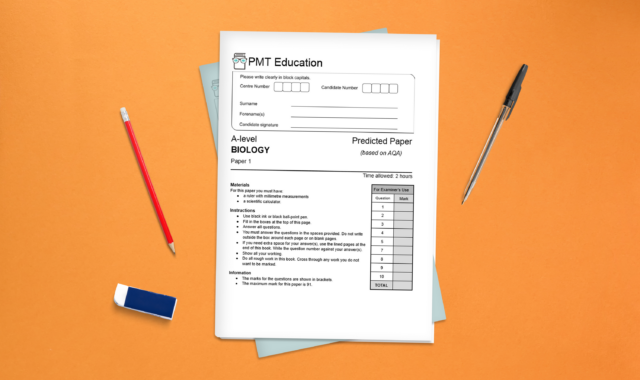This block is currently empty. Please add some content.
Contents:
If you’re considering becoming a mathematics tutor but are unsure where to start, you’ve come to the right place. In this article, I’ll outline the steps that helped me build my tutoring experience and support students effectively over the past eight years.
It’s important to note that I was not a naturally gifted mathematics student at school. Even as a top-set student, I often felt confused and lost during lessons, relying heavily on memorising methods and grinding through past exam questions to excel. However, my approach to learning and, consequently, teaching, has since transformed. Pursuing a degree in mathematics transformed my appreciation and understanding of the subject, compelling me to seek a deeper understanding of mathematical concepts and move away from rote memorisation towards exploring the underlying logic and reasons behind each method.

Tutoring GCSE and A Level Mathematics alongside my degree gave me a deeper understanding of the concepts, and I regularly discovered new insights while teaching. Therefore, I can empathise with students who struggle because I faced the same challenges. Having mastered the content, I can now break down every detail of a problem into simple terms, which greatly benefits my students. For me, effective teaching involves explaining each step of a problem or concept in clear, straightforward language; if I can understand it, so can my students.
What qualifications do you need to become a maths tutor?
Many people believe they don’t know or understand the content well enough to start teaching. However, if you have achieved top grades in mathematics, you are certainly capable of helping others succeed as well.
Richard Feynman, the renowned American theoretical physicist, famously said, “If you want to master something, teach it.” I firmly believe in this principle: teaching not only reinforces your understanding but also deepens it, making you a more effective teacher. The process of teaching creates a cycle – the more you teach, the better you become, and this cycle of improvement never stops. Each teaching experience enhances your skills, further deepening your mastery and effectiveness as a teacher.
Generally, you should be at least one level above the one you intend to teach. For instance, if you’ve just completed your GCSEs with top grades and are now studying A Level Mathematics, you’re well-prepared to become a great GCSE tutor. However, this might be challenging, especially since most tutoring agencies require you to have studied or be studying the subject at degree level. Therefore, starting with smaller commitments, such as volunteering at your school’s lunchtime club or with a charity, is a great way to gain experience without the pressure of delivering outstanding service.
After completing your A Levels and starting university, you’ll have gained valuable experience that will be beneficial when signing up with tutoring agencies.
How much should you charge as a maths tutor?
Initially, I charged £20 per session, reflecting my limited teaching experience but high academic performance. This pricing strategy demonstrated to prospective clients that despite my lack of teaching experience, my high grades proved I understood the material well enough to help them succeed. As I became more proficient in teaching the GCSE and A Level courses, I gradually increased my rates to reflect my growing expertise.
Now, having taught the course to a diverse range of students, I’ve learnt how to adapt my teaching methods to various learning styles and levels. Each session has taught me something new, allowing me to continually refine my techniques and increase my rates as I accumulated positive reviews and extensive experience.

What skills do you need to become a maths tutor?
Having an excellent academic track record coupled with the following list of skills will help you stand out and become an excellent mathematics tutor:
- Relationship building: Students are more likely to engage in lessons if they feel a personal connection with you, which goes beyond just sharing your passion for mathematics. Building a rapport by discussing topics beyond the subject can significantly enhance trust. Aim to be seen as a mentor, not just a tutor, to foster a deeper, more meaningful connection that enhances the learning experience.
- Patience and adaptability: Every student approaches learning differently, so patience and adaptability are essential. Tailoring explanations, tools, and strategies to meet individual needs can help create a supportive environment that encourages questions and builds confidence.
- Communication: Providing clear and concise explanations is essential, especially for complex mathematics concepts. I make it a point to explain every step of a problem, often repeating more challenging questions or asking students to explain the solution to me, ensuring they truly understand.
- Organisation: Keeping track of each student’s progress, session times, and learning goals is key to delivering structured and effective tutoring sessions. I send reminders to my students 24 hours before each session, asking them to share specific topics or tricky questions they want to cover. This proactive approach ensures that both of us are well-prepared, maximising our session time and also serving as a gentle reminder of the upcoming lesson.
What resources and equipment do you need to become a tutor?
To create an effective online tutoring environment, there are several essentials you’ll need. A stable Wi-Fi connection, a quality microphone and webcam, and a comfortable workspace are crucial for smooth lessons. For writing and illustrating concepts, especially in mathematics, I recommend using a computer with a Wacom graphics tablet or an iPad with an Apple Pencil. For a complete guide to creating an exceptional online tutoring setup, refer to my recent article, How to create the perfect online tutoring setup.

Top tips for new mathematics tutors
Teaching mathematics starts with clear explanations, followed by a variety of practice questions. Exposing students to different perspectives on the same concept deepens their understanding and builds adaptability in problem-solving. Limit direct teaching to about 40% of the lesson, leaving 60% for student practice.
As a mathematics tutor, your role is to guide, not demonstrate. Use leading questions to help students uncover each step on their own. If a student struggles and asks for help, review their work to locate mistakes. Once identified, encourage them to try a similar problem to ensure they understand the concept or procedure. This approach promotes independence and strengthens problem-solving skills, which, in my view, is what mathematics is all about: becoming a logical problem solver.
High-quality teaching resources are essential for ensuring student success. Over the past eight years, I’ve accumulated a wealth of resources that I trust and know work effectively. With so much available, it can be challenging to sift through the options to find truly valuable materials. Below is a curated list of my favourite resources to help you kick-start your mathematics tutoring career.
GCSE Mathematics resources
In addition to textbooks, several useful websites can assist in GCSE Mathematics tutoring.
These include:
- Physics and Maths Tutor for notes, questions by topic, and past papers
- GeoGebra for interactive animations
- Meta Tutor for practice questions
- Sparx Maths for practice questions
- Mr. Carter Maths for practice questions
- Maths Genie for practice questions
- Mathematics Monster for practice questions
- Resourceaholic for practice questions
- Dr Austin Maths for practice questions
- Corbettmaths for practice questions
A level Mathematics resources
In addition to A Level and IB textbooks, as well as many of the websites mentioned above, I also use the following websites to support my A Level Mathematics tutoring.
These include:
Overall, becoming a mathematics tutor is about more than just your own top grades; it’s about connecting with students and fostering an environment that encourages their academic growth. With the right dedication and approach, you can significantly impact others’ educational journeys.







Comments